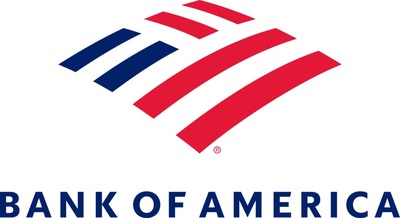Parent Trap: Nearly Half of Adult Gen Zers Getting Financial Help from Mom & Dad, According to BofA Study
According to a recent Bank of America study, 46% of Gen Z adults (ages 18-27) receive financial support from their parents. The study, part of the Better Money Habits® financial education initiative, highlights that 52% of Gen Zers feel their income is insufficient to achieve their desired lifestyle, with the high cost of living being a significant barrier. Consequently, many are delaying major milestones such as homeownership (50%), retirement savings (46%), and investing (40%).
To manage their finances, 67% are making lifestyle adjustments like dining out less (43%) and opting for cheaper groceries (24%). Despite a strong labor market, a significant portion still struggles with savings, with 57% lacking emergency savings and only 15% regularly contributing to savings accounts. Notably, 82% of Gen Zers have financial goals, focusing on daily expense management and budgeting.
Furthermore, 54% of Gen Zers do not cover their housing costs, and among those who do, 64% spend over 30% of their monthly income on housing. The study emphasizes the importance of financial education and empowerment for Gen Z to achieve long-term financial health.
- None.
- None.
Better Money Habits® Survey Indicates Younger Americans are Delaying Milestones and Implementing Lifestyle Changes to Adapt to Today's Economic Realities
To offset growing expenses, the study found that two-thirds (
Watch a video message from Holly O'Neill, President of Retail Banking
"Though faced with obstacles driven by the cost of living, younger Americans are showing discipline and foresight in their saving and spending patterns," said Holly O'Neill, President of Retail Banking at Bank of America. "It is critical that we continue to empower Gen Z to work toward achieving financial health and meeting their long-term goals."
Getting Support and Saying No
Despite their greater discipline, amidst today's high cost of living, Gen Z remains financially dependent on others. Over half (
The new Better Money Habits research found that "loud budgeting" – being vocal with friends about what social outings they can and cannot afford – has helped Gen Z live within their means. More than one-third (
Saving Struggles
Gen Z continue to struggle with building savings and contributing to their retirement.
- Over half (
57% ) of respondents do not have enough emergency savings to cover three months of expenses. - Nearly one-third (
30% ) feel they don't make enough money to save. - Only
15% of Gen Z put a set percentage of their paycheck into a savings account each month. Just 1 in 5 contribute to a 401(k) plan or retirement account.
Additional Insights from the Survey:
- Most Gen Z respondents shared that they feel equipped to handle financial basics, such as managing their day-to-day expenses (
70% ), sticking to a budget (70% ) and building/managing credit (66% ). - The vast majority (
82% ) of Gen Z have financial goals, and over half (51% ) are prioritizing them. - Gen Z continues to use their leftover income on experiential spending like dining out (
36% ), shopping (30% ) and entertainment (24% ) – higher than other generations. 61% of Gen Z women said the high cost of living is a barrier to financial success, vs.44% of men.
For more details, please see the full report (PDF).
Methodology
This survey was conducted April 17 – May 3, 2024, by Ipsos in both English and Spanish and is based on nationally representative probability samples of 1,097 general population adults (age 18 or older) and a partially overlapping sample of 1,091 Gen Z adults (age 18-27), including 37 Gen Z adults from a non-probability sample. This survey was conducted primarily using the Ipsos KnowledgePanel®, the largest and most well-established online probability-based panel that is representative of the adult US population. The margin of sampling error for the general population sample is +/- 3.1 percentage points at the 95 percent confidence level.
Better Money Habits
At Bank of America, we're committed to helping people lead better financial lives by equipping them with the skills, knowledge and confidence to succeed. That's why we created Better Money Habits, a financial education platform of tools and information that helps people make sense of their money and take action to improve. As a cornerstone of Better Money Habits, we offer free financial education content and tools that break down financial topics in a way that's approachable and easy to understand. We continually look for ways to expand the reach of Better Money Habits and also offer Spanish language resources on the site.
Bank of America
Bank of America is one of the world's leading financial institutions, serving individual consumers, small and middle-market businesses and large corporations with a full range of banking, investing, asset management and other financial and risk management products and services. The company provides unmatched convenience in
For more Bank of America news, including dividend announcements and other important information, visit the Bank of America newsroom and register for news email alerts.
Reporters may contact:
Susan Atran, Bank of America
Phone: 1.646.599.3300
susan.atran@bofa.com
![]() View original content to download multimedia:https://www.prnewswire.com/news-releases/parent-trap-nearly-half-of-adult-gen-zers-getting-financial-help-from-mom--dad-according-to-bofa-study-302192841.html
View original content to download multimedia:https://www.prnewswire.com/news-releases/parent-trap-nearly-half-of-adult-gen-zers-getting-financial-help-from-mom--dad-according-to-bofa-study-302192841.html
SOURCE Bank of America Corporation







